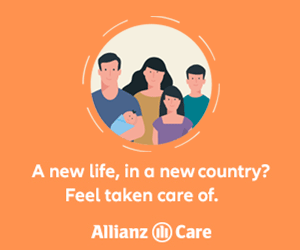Coffs Harbour, Australia
Last updated on Jul 10, 2023
Summary: Expats, digital nomads and retirees talk about what it is really like living in Coffs Harbour, Australia. They offer advice about meeting people, cost of living, finding a home and more.
What do I need to know before moving to Coffs Harbour?
When we asked people what advice they would give someone preparing to move to Coffs Harbour, they said:
"Coffs Harbour is a coastal city located in New South Wales, Australia, known for its beautiful beaches, national parks, and marine life. The city has a subtropical climate, with mild winters and warm, wet summers, making it a great place for outdoor activities. The cost of living in Coffs Harbour is relatively lower compared to major Australian cities like Sydney and Melbourne, but it's still higher than many places in the world. Before moving to Coffs Harbour, expats should be aware that the city is relatively small, with a population of around 70,000 people. This means that while the city is not as bustling as larger cities, it offers a more relaxed and laid-back lifestyle. The city's economy is primarily based on tourism, agriculture, and fishing, so job opportunities may be limited in other sectors. Healthcare in Coffs Harbour is of a high standard, with several hospitals and clinics in the city. However, it's important for expats to have comprehensive health insurance, as healthcare in Australia can be expensive. Public transportation in Coffs Harbour is not as extensive as in larger cities, so having a car can be beneficial. However, the city is quite walkable and there are also taxi services available. Coffs Harbour has a range of housing options, from apartments in the city to houses in the suburbs. Renting can be a good option for expats before deciding to buy a property. The city is home to a number of schools, including public, private, and international schools, offering a good education system for families moving with children. Coffs Harbour has a diverse food scene, with many restaurants offering a variety of cuisines. The city is also known for its fresh seafood, thanks to its coastal location. Finally, while English is the main language spoken in Coffs Harbour, the city is multicultural and welcoming to expats. However, understanding Australian slang and culture can help in settling down and integrating into the local community," explained one expat living in Coffs Harbour, Australia.
How do I find a place to live in Coffs Harbour?
Please login to continue reading this article.
Not a member? Join Today (it's free).
About the Author
 Betsy Burlingame is the Founder and President of Expat Exchange and is one of the Founders of Digital Nomad Exchange. She launched Expat Exchange in 1997 as her Master's thesis project at NYU. Prior to Expat Exchange, Betsy worked at AT&T in International
and Mass Market Marketing. She graduated from Ohio Wesleyan University
with a BA in International Business and German.
Betsy Burlingame is the Founder and President of Expat Exchange and is one of the Founders of Digital Nomad Exchange. She launched Expat Exchange in 1997 as her Master's thesis project at NYU. Prior to Expat Exchange, Betsy worked at AT&T in International
and Mass Market Marketing. She graduated from Ohio Wesleyan University
with a BA in International Business and German.
Some of Betsy's articles include 12 Best Places to Live in Portugal, 7 Best Places to Live in Panama and 12 Things to Know Before Moving to the Dominican Republic. Betsy loves to travel and spend time with her family. Connect with Betsy on LinkedIn.

 Coffs Harbour, Australia
Coffs Harbour, Australia

